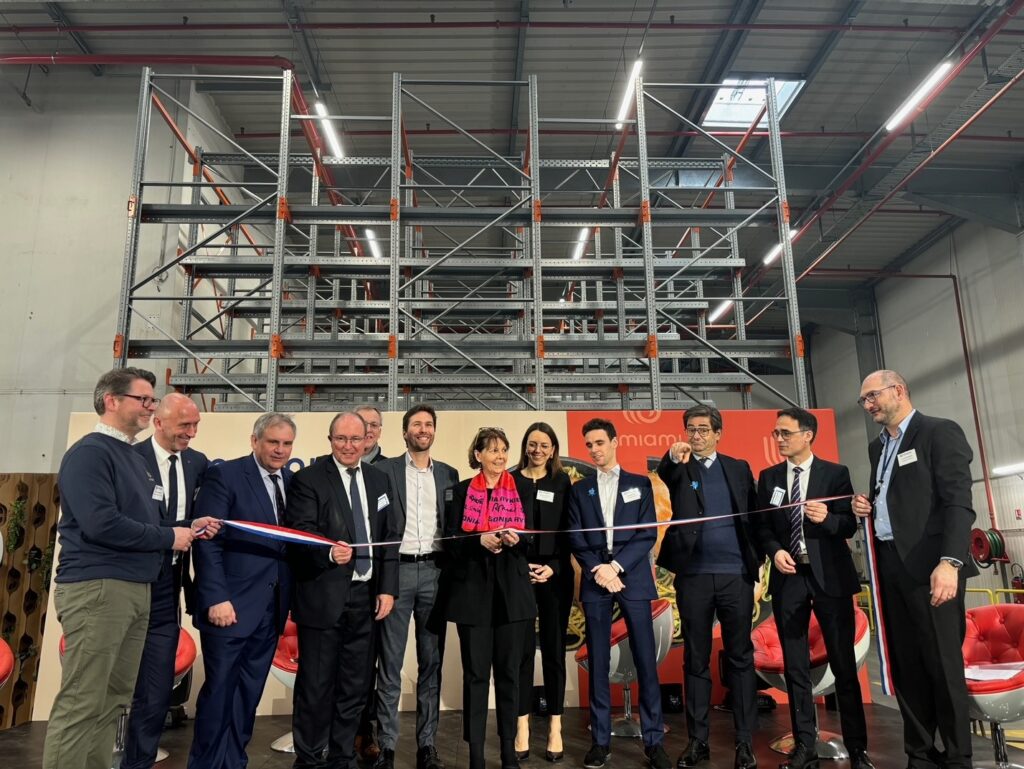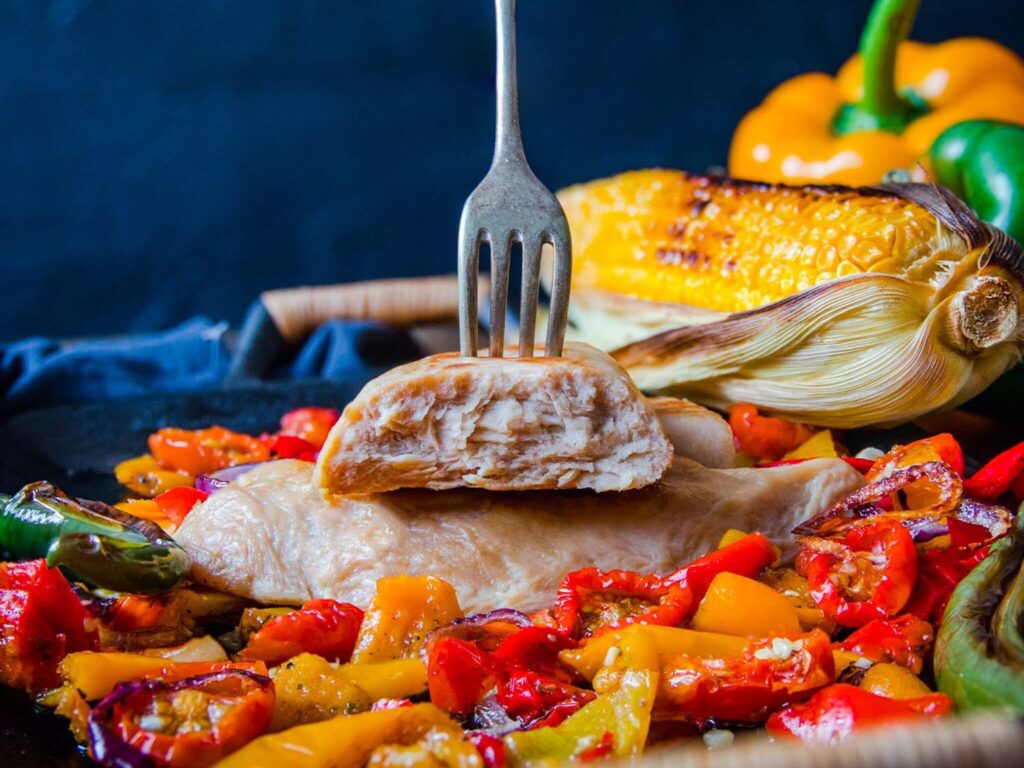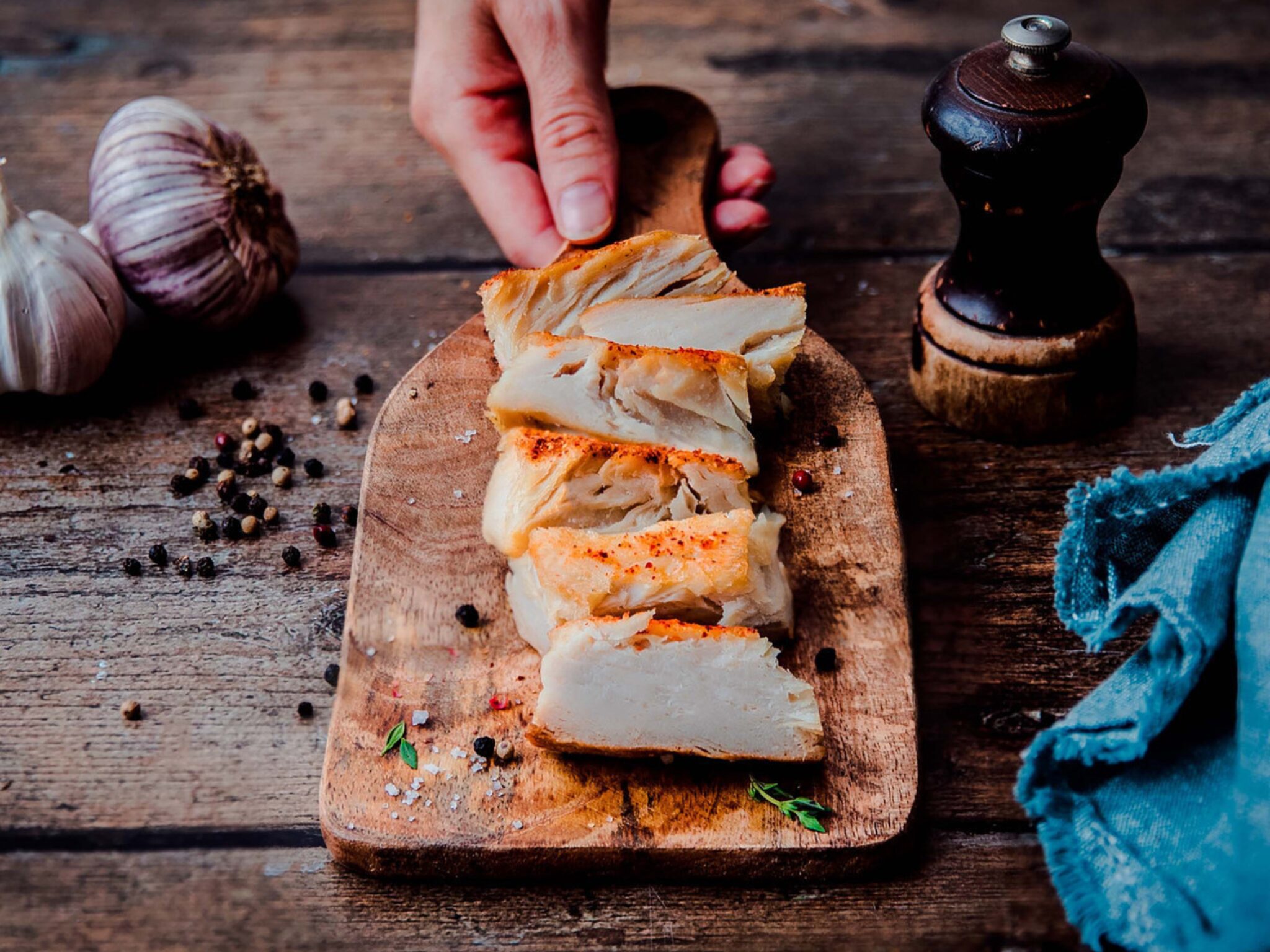Backed by Government & EU Funding, Umiami Opens Large-Scale Plant-Based Meat Facility in France
6 Mins Read
Parisian plant-based whole-cut meat producer Umiami has opened a commercial-scale facility in the Alsace region, backed by financing from the French government, the Grand Est area, as well as the EU. It plans to launch its chicken fillet on supermarket shelves in France this year.
In the presence of government officials, regional representatives and local leaders, Umiami this week inaugurated its new 14,000 sq m facility to produce whole-cut meat alternatives on a commercial scale and enable its European and North American expansion.
It comes 14 months after the startup announced the takeover of the former Unilever factory near Strasbourg in France’s Alsace region, which has been rehabilitated through a €38M ($41.3M) investment. This includes €7.5M ($8.2M) in financing from the Sociétés de Projets Industriels (SPI) fund – overseen by Bpifrance for the French government as part of the France 2030 economic investment plan – as well as €1.5M ($1.6M) each from the Grand Est Region and the EU’s European Regional Development Fund.
The result of three years of development and scaling up, the factory employs 53 people and can produce 7,500 tonnes of plant-based meat annually, which is slated to increase to 20,000 tonnes eventually. It will allow Umiami to expand its presence in Europe and North America, with plans to launch its soy-protein-based whole-cut chicken into French retail this year.
“The opening of our factory in Alsace represents the culmination of years of innovation, research and dedication to transforming the food industry,” co-founders Tristan Maurel, Martin Habfast and Clémence Pedraza said in a joint statement. “We sincerely thank our partners, teams, and communities for their support as we work towards a more sustainable and ethical future in food.”
Creating local jobs with clean-label vegan chicken

Umiami, which has raised €100M ($107M) in total investment to date, had been operating in an R&D pilot plant in the Paris region since 2022, which is now a “centre of innovation that allows our R&D team to innovate and work on new projects”, Maurel and Habfast told Green Queen. Having previously outlined its goal to be at the centre of the region’s reindustrialisation and creation of local jobs, the startup says the new facility is “strategically positioned in the heart of Europe”.
“The inauguration of this first factory marks a pivotal moment in Umiami’s journey, following years of development of a unique technology, and illustrates the ambitions of the SME and industrial startups plan that we are supporting,” said Nicolas Dufourcq, executive director of Bpifrance. “Over and above the challenges of reindustrialisation in the Alsace region, the company is developing innovations that will help to promote our agri-food expertise, taking into account the challenges of a low-carbon transition, and we are proud to have supported it throughout the various phases of its development.”
Franck Leroy, president of the Grand Est region, added: “The establishment of the UMIAMI factory in the Grand Est region represents a substantial uplift for our area. Beyond job creation, this initiative showcases our commitment to fostering economic growth in our communities and driving forward the ecological transition.”
Umami makes whole-cut meat and fish alternatives through its proprietary plant-based meat texturising tech, called “umisation”. The brand previously told Green Queen that this technology “perfectly mimics the taste and texture of meat and fish, with equivalent nutritional value”, with the resulting meat product containing fewer than 10 ingredients.
“Umisation is an innovative protein texturing technology that is unique and specific to Umiami. It is the world’s first-ever process to be able to create – on a large scale – plant-based fillets that resemble pieces of animal meat: both in taste and texture,” a spokesperson said in October. “This technology is the result of several years’ research and development, and uses plant matrices to produce a fibrous texture and control the size, direction and thickness of the resulting fibres.”
They added: “As well as producing better texture, umisation has the advantage of offering a minimally processed product from a very short list of ingredients. The procedure now makes it possible to produce a whole, 100% plant-based thick fillet, with fibres resembling those of meat and reproducing that unique, gourmet sensation mouthfeel.”
International expansion amid a tough climate for plant-based

Umiami’s product is already available in France, Belgium, the Netherlands, Spain and Italy under a white label. And in August, it launched under its own brand name for the first time at 120 Coop stores in Switzerland. This year, it plans to move into retail in its home market, and expand into the US, which it has referred to as a “more developed market for plant-based meat alternatives”.
Whole cuts are touted as the “holy grail” of plant-based meat, delivering a more realistic texture by recreating animal muscle fibres, as well as a more rounded flavour. There are many companies creating such products, including Chunk Foods (US), Juicy Marbles (Slovenia), Redefine Meat (Israel), Libre Foods (Spain), Green Rebel (Indonesia) and Revo Foods (Austria), among others.
These products will appeal to the 57% of French consumers reducing their meat consumption, as a large EU-backed survey last year found. For these people, health is the primary motivator for cutting back on meat, and it’s also their main barrier towards eating more plant-based meat – this is a hurdle Umiami will be hoping to overcome through its texturising tech, which removes the need for any texturising agents or “controversial additives” to make a clean-label product. Shorter ingredient lists and minimal processing are important to consumers, given that 57% of Europeans avoid plant-based meats due to their ultra-processed nature.
According to alternative protein think tank the Good Food Institute Europe, France is Europe’s fifth-largest plant-based market, with sales of meat alternatives growing by 17% from 2020-22. One survey from 2022 showed that 22% more consumers included more plant proteins in their diets from 2021-22, while 41% considered vegan food the third most important protein source, after meat and eggs (but above fish). Plus, a 2021 Kantar World Panel study revealed that flexitarians had nearly doubled in France, accounting for 25% in 2015, and 49% in 2021.
But meat and alternative proteins have been a controversial topic in France, one of Europe’s largest animal protein consumers (its citizens ate nearly 85kg of meat per capita last year, double the global average). Despite nutrition experts and climate activists calling for the national dietary recommendations to suggest eating less meat, the government is promoting more factory farming. Plus, it has been at the at the forefront of efforts in the EU to ban cultivated meat, and earlier this year, it officially banned the use of meat-related terms on plant-based products.
Umiami’s progress also comes on the backdrop of wider challenges for the plant-based industry, where sales have declined and companies have ceased operations in the last couple of years. In fact, global funding for food tech halved in 2023 from the year before. Asked about the plant-based industry’s challenges and future, Maurel and Habfast reiterated the importance of health.
“The biggest challenge is to provide good products to consumers by understanding their needs,” they said. “We are in a new area for plant-based products and it’s very important to provide a transparent list of ingredients and clean-label products.”



